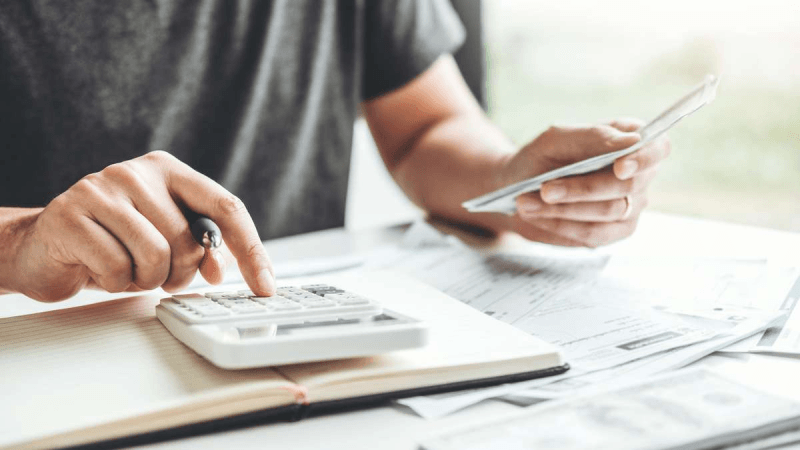
Learning to manage money from an early age is a skill that will accompany us throughout our lives and allow us to make informed decisions about how to spend, save and invest our money.
In this article, we present the 10 best tips to start your financial education and begin to build a solid financial future.
Keep your personal finances in order
To have a good financial education, it is essential to keep your personal finances in order. This means keeping track of your income and expenses, setting a budget and sticking to it, and avoiding getting into more debt than you can afford.
In addition, it is important to have an emergency fund for contingencies and to plan for the long term to reach your financial goals, such as buying a home or retirement.
Other practices that can help you keep your personal finances in order include:
- Paying your bills on time to avoid late fees.
- Shop around before making a major purchase.
- Taking advantage of discounts and promotions to save money.
- Investing your money wisely for long-term returns.
By keeping your personal finances in order, you will be better prepared to face financial challenges that may arise in the future and you will be able to enjoy a more financially secure and peaceful life.
Set realistic financial goals
One of the keys to improving your financial education is to set realistic financial goals. This means having clear and achievable goals in terms of saving, investing and spending.
To set realistic financial goals, it is important that you make an analysis of your current financial situation and define what you want to achieve in the short, medium and long term. For example, you can set a monthly savings goal to create an emergency fund or an investment goal to achieve financial freedom in a specific time frame.
Remember that financial goals should be specific, measurable, achievable, relevant and time-bound. This way, you will have a concrete action plan to achieve your goals and improve your financial situation.
Create a budget and track your expenses
One of the best ways to keep track of your finances is to create a monthly budget. This will allow you to know exactly how much money you are spending and on what. To do this, start by writing down all your income and then make a list of all the fixed expenses you have each month, such as rent, bills, food, transportation, etc.
Next, set a limit for variable expenses, such as entertainment or non-essential purchases. Once you've created your budget, be sure to track your spending to make sure you're sticking to your financial plan.
There are many apps and online tools that can help you track your expenses and even automatically categorize them so you can see where you're spending the most money. Be sure to regularly review your budget and adjust it as needed.
Avoid unnecessary debt
One of the main causes of financial problems is excessive debt. That's why it's important to avoid unnecessary debt and learn how to properly manage those that are unavoidable.
Before acquiring a debt, evaluate if you really need the product or service you are buying and if you will be able to pay it in the established term. If you are not sure, it is better to wait and save to be able to buy it without having to resort to a loan.
It is also important to compare different credit options and choose the one with the lowest interest rate and the most favorable conditions for you. And of course, never spend more than you earn.
Save for emergencies and for the future
One of the fundamental pillars of financial education is saving. It is important that you learn to save for both emergency situations and to plan for your future.
To save for emergencies, it is recommended that you have a reserve fund equivalent to between three and six months of your monthly expenses. This fund will allow you to deal with unforeseen situations such as illness, car breakdown or job loss without having to resort to loans or credit cards.
On the other hand, it is also important that you start saving for your future. You can do this by investing in pension plans or mutual funds that allow you to earn long-term returns. The sooner you start saving, the more time you will have to accumulate a capital that will allow you to enjoy a comfortable retirement.
Remember that saving does not mean depriving yourself of everything you like. It's simply a matter of being aware of your expenses and prioritizing those that are really important to you. Over time, you will see how your savings grow and how you feel more secure and calm in any financial situation.
Look for ways to increase your income
One of the keys to improving your financial situation is to look for ways to increase your income. Here are some ideas:
- Look for an additional job or a better paying job.
- Sell products or services on your own.
- Investing in the stock market or in real estate.
- Create a source of passive income, such as renting out a property or investing in a business.
- Offering your skills as a freelancer or independent consultant.
Remember that increasing your income will not only allow you to have more money, but will also give you more financial flexibility and help you reach your long-term goals.
Invest wisely
Once you've learned the basics of financial literacy and have a clear idea of your goals and objectives, it's time to start investing. But before you do, it's important to research and educate yourself about the different investment options available and their risks.
Don't rush to invest all your money in one option. Diversify your investment portfolio to minimize risks. Consider options such as stocks, bonds, mutual funds, real estate, among others.
It is also important to consider the term of your investments. If you are investing for the short term, it is better to opt for safer and more stable options. If your goal is for the long term, you can risk a little more in options with higher potential for profitability.
Remember that the key to investing wisely is patience and discipline. Don't get discouraged if your investments don't generate immediate returns. Keep your strategy for the long term and keep learning about the world of investing.
Educate yourself about personal finance
Financial education is fundamental to be able to make informed and responsible decisions regarding our money. Learn about basic concepts such as budgeting, saving, investing and debt. Look for books, articles and online courses to improve your financial knowledge.
Don't limit yourself to learning only the basics. Research more advanced topics such as taxes, insurance and retirement planning. It's also important to keep up with economic trends and market changes.
Don't be afraid to ask for help or advice from financial experts or friends who have experience in the field. Financial education is an ongoing process, so never stop learning and improving your financial skills.
Seek professional help if needed
Don't be afraid to seek professional help if you feel overwhelmed or confused on your financial education journey. A financial advisor or accountant can help you create a personalized plan and advise you on specific strategies to reach your financial goals.
In addition, if you have significant debt or serious financial problems, it is important to seek help as soon as possible. A professional can help you create a plan to pay off your debts and regain control of your finances.
Remember that there is nothing wrong with asking for help. Financial education is an ongoing process and can be difficult to navigate on your own. A professional can be a great source of support and guidance on your path to financial independence.
Maintain a positive attitude toward money and wealth
To be successful in your financial education, it is important to change your mindset towards money. Instead of seeing it as something negative or dirty, you should see it as a tool to achieve your goals and improve your quality of life.
Also, it is important that you don't feel guilty about wanting to be rich or have more money. Wealth is not a bad thing, as long as it is obtained ethically and legally.
Finally, you should maintain a positive attitude towards money and wealth. This means being grateful for what you have and focusing on the opportunities to grow financially rather than focusing on the limitations.



